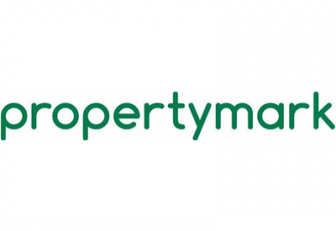 The Welsh government is being urged to do more to support buy-to-let landlords to ensure there are a sufficient number of rental properties to meet demand from tenants.
The Welsh government is being urged to do more to support buy-to-let landlords to ensure there are a sufficient number of rental properties to meet demand from tenants.
Propertymark met with the Welsh Conservative spokesperson for housing and Member of the Welsh Parliament for Aberconwy, Janet Finch-Saunders MS, last week in a roundtable discussion to examine the heated focus on Welsh second homes.
Propertymark previously worked with Finch-Saunders last month when she urged the Welsh government to review the possibility of developing a dedicated housing tribunal for Wales, following increasing regulatory divergence with England.
Now she has turned her support to combat the growing scrutiny of second homeowners in Wales. A hot debate, Ms Finch-Saunders has been publicly critical of the council tax premiums in Wales for second homeowners acknowledging their place as a beneficial one within the local economy.
In Wales, the tourism industry amounts to some 13.3% of the total economy with approx. 100,000 people employed in the tourism industry. This accounts for almost 10% of the Welsh workforce.
Propertymark’s devolved policy manager, Daryl McIntosh, engineered the roundtable and joined alongside policy officer, Faye Greaves. .with Welsh representatives from both ARLA Propertymark and NAEA Propertymark.
Perhaps the most vital topic was centred around the classification of ‘second homeowner’.
The varying types of second home purchasers from landlords who rent their properties on either a long- or short-term basis to those who simply visit when they want a break away from their permanent residence all add different levels of benefit to the local economy yet are polarised under a catch-all classification.
Commenting on the meeting, Finch-Saunders said: “With the Welsh government consulting on possible new regulations around the sale and building of second homes, holiday-let properties and social properties, I warmly welcome this insightful virtual roundtable which will ensure that decisionmakers maintain an up-to-date picture of the market.
“These interventions come at a time when moves are being made to address the housing crisis. However, we know that tackling second homes will not solve the issue of housing affordability, a point which was reflected in a recent presentation to Senedd members by Shelter Cymru.
“Instead, Welsh government should look at bringing forward a slate of proactive and positive proposals such as increasing house building, bringing empty properties back into use and introducing a cut in Land Transaction Tax which would remove the cap on aspiration.”
Those joining the discussion had concerns over mounting issues for landlords and warned of limited resources to tackle homelessness.
“The PRS is suffering massively,” said Angela Davey, immediate past president of ARLA Propertymark based in South Wales. “I’ve been an agent for 30 years and I’ve never seen anything like this – local authorities used to depend on the PRS to support people facing homelessness but there are no incentives for private landlords to remain – a short term let is potentially a much more attractive offer. Soon there will be nowhere for people to live.”
Propertymark called the meeting as they share their members’ concerns over the loss of private landlords.
“We convened this roundtable to make sure our members could contribute to this important debate. A crucial part of our work in the policy team is to capture the valuable insights of our members who see the impact of these issues on a daily basis.
“This challenge to the Welsh housing market is not straight forward and the impact of second homes will look different to the lettings industry compared with the sales market.
“In order to develop policies that account for these differences we need a clear definition of ‘second home’ and to improve our understanding of the reality at a local level.
“It has been a great opportunity to discuss this in partnership with the shadow minister for climate change.”


Comments are closed.